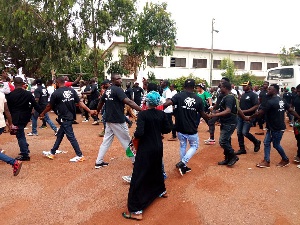The use of vigilante groups in our electoral process is a pressing issue that raises concerns about the integrity of our democratic practices. While these groups may claim to be acting in the best interest of protecting the sanctity of elections, their actions often negatively affect the practice of democracy.
I have observed a few negative practices in our electoral process, i.e., vigilante groups. I will explore the negative impacts of vigilante groups on our electoral process and democracy as a whole.
Vigilante groups are typically formed by individuals who believe that the electoral process is being manipulated or corrupted in some way. These groups often take matters into their own hands, conducting their own investigations, monitoring polling stations, and even intimidating voters and election officials. While their intentions may be well-meaning, the actions of vigilante groups can have serious negative consequences for the electoral process.
One of the main negative impacts of vigilante groups on our electoral process is the potential for voter intimidation. When vigilante groups take it upon themselves to monitor polling stations and question voters, it can create a hostile and intimidating atmosphere for voters. This can lead to fear and distrust among voters, ultimately discouraging them from exercising their right to vote. Voter intimidation goes against the principles of democracy and undermines the idea of free and fair elections.
Another negative impact of vigilante groups is the potential for violence and unrest. In some cases, vigilante groups have resorted to violence to achieve their goals. This not only poses a threat to the safety of voters and election officials but also undermines the credibility of the electoral process. Violence and unrest have no place in a democracy, as they erode the foundations of peaceful and democratic governance.
Furthermore, the actions of vigilante groups can also lead to the spread of misinformation and fake news. These groups often rely on unverified information and conspiracy theories to justify their actions. This can have a destabilizing effect on the electoral process, as false information can lead to confusion and distrust among voters. In a democracy, voters must have access to accurate and reliable information to make informed decisions at the polls.
In addition, vigilante groups can also undermine the independence and credibility of electoral institutions. When vigilante groups take it upon themselves to monitor elections and investigate alleged fraud, it can undermine the authority of official election bodies. This can erode public trust in the electoral process and lead to further polarization and conflict. In a democracy, it is essential that electoral institutions can carry out their duties independently and free from external interference.
Overall, the use of vigilante groups in our electoral process can have serious negative effects on the practice of democracy. Voter intimidation, violence, the spread of misinformation, and the erosion of trust in electoral institutions are just some of the consequences of allowing vigilante groups to operate unchecked. To protect the integrity of our democratic practices, we must condemn the use of vigilante groups and uphold the principles of free and fair elections.
In conclusion, the use of vigilante groups in our electoral process poses a significant threat to the practice of democracy. Their actions can lead to voter intimidation, violence, misinformation, and the erosion of trust in electoral institutions. To safeguard the principles of democracy, we must reject the use of vigilante groups and uphold the values of free and fair elections.
Opinions of Monday, 11 March 2024
Columnist: Aaron Babako Korkormissah















